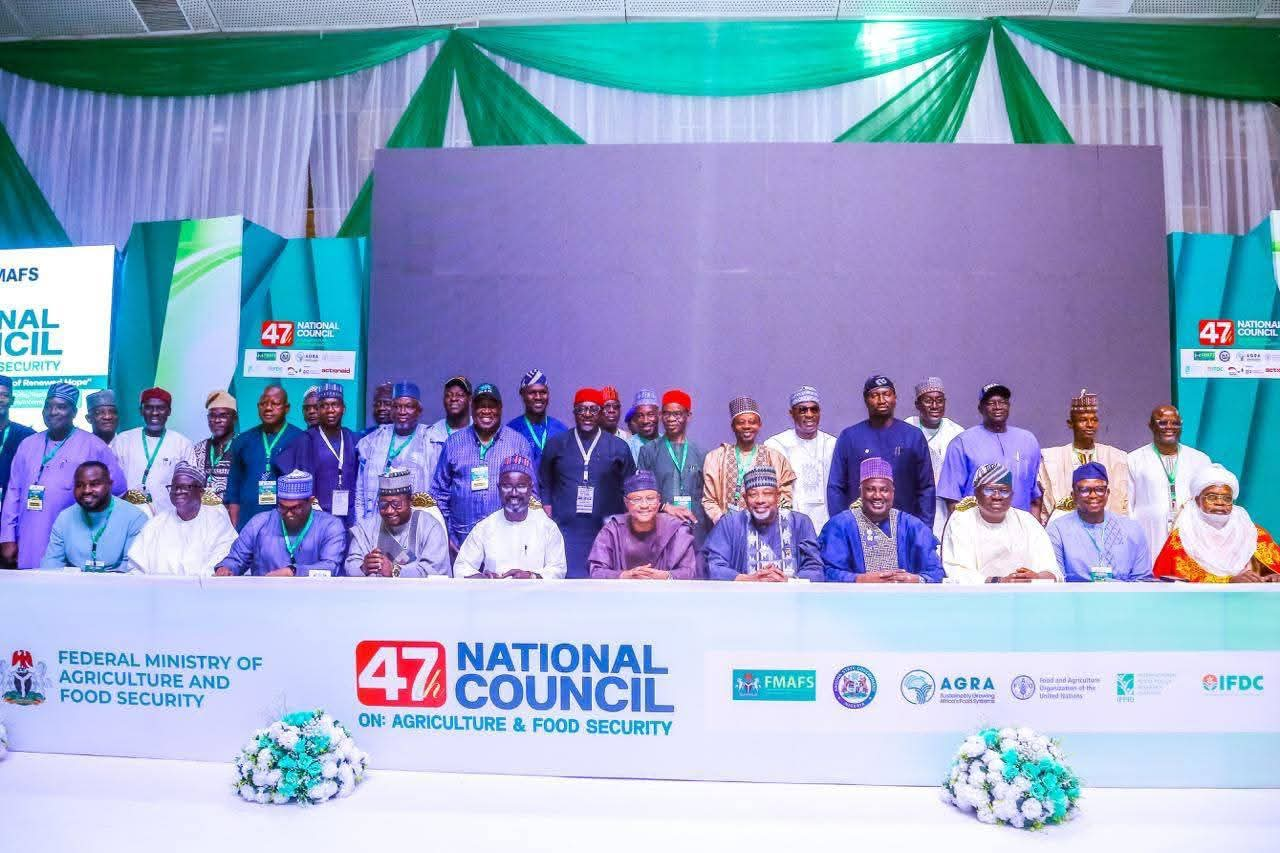FG Attributes Drop in Food Prices to Market Reforms, Agricultural Revival Policies

By Our Reporter | Kaduna | November 6, 2025
The Federal Government says the recent drop in food prices across Nigerian markets is the result of deliberate economic reforms and agricultural support policies aimed at boosting local food production.
The Minister of Agriculture and Food Security, Senator Abubakar Kyari, made this known at the 47th National Council on Agriculture held in Kaduna on Thursday.
According to him, President Bola Ahmed Tinubu’s administration is committed to ensuring national food self-sufficiency so that Nigeria can feed itself while stabilising prices for consumers.
“We have already begun to see a downward trend in the prices of some key food items, reflecting the positive impact of the government’s interventions,” Kyari said. “Although we are not yet where we want to be, this progress indicates that we are on the right path.”
The minister explained that the National Agricultural Growth Scheme–Agro-Pocket (NAGS–AP), implemented in partnership with the African Development Bank (AfDB) and state governments, is central to improving input supply and boosting agricultural output nationwide.
He noted that the number of states cultivating wheat has increased from 15 during the 2023/2024 wet season to more in the 2024/2025 cycle. Last month, the ministry launched the dry-season rainfed wheat farming programme in Kuru, Plateau State — an innovation developed by the Lake Chad Research Institute to enable wheat cultivation without reliance on irrigation.
“This new technology will allow Nigeria to grow wheat all year round, particularly in Plateau, Taraba, and Cross River states, helping us achieve self-sufficiency in wheat production,” Kyari added.
To reduce post-harvest losses and stabilise food prices, the government has introduced the Nigeria Postharvest Systems Transformation Programme (NiPHaST) in collaboration with the Alliance for a Green Revolution in Africa (AGRA).
Kyari also disclosed that the government has approved ₦1.5 trillion to recapitalise the Bank of Agriculture, along with an additional ₦250 billion to support smallholder farmers.
In addition, a National Mechanisation Programme was launched in partnership with Heifer Nigeria to empower youths and women to establish agricultural mechanisation centres across the country.
Meanwhile, the Minister of State for Agriculture and Food Security, Senator Dr. Aliyu Sabi Abdullahi, called for the adoption of climate-smart agriculture to ensure sustainable food production amid changing weather patterns.
He highlighted several key initiatives, including a 500,000-hectare dry-season farming programme, a solar-powered irrigation scheme, and the “Every Home a Garden” campaign championed by the First Lady, Senator Oluremi Tinubu, to promote household food production.
In his opening remarks, the Governor of Kaduna State, Senator Uba Sani, stressed that food security is no longer a matter of policy but a question of survival and national stability.
“Under President Tinubu’s Renewed Hope Agenda, agriculture has been positioned as the backbone of Nigeria’s economy — revitalising value chains and improving rural infrastructure,” the governor said.
He added that in Kaduna, agriculture is regarded not just as an occupation but as “the foundation of development and community wellbeing.”
Before the council meeting, the ministers and ministry officials visited agricultural facilities including De-Branch Farmers, Afrexim Bank Quality Assurance Centre, Olam Agri, Tomato Jos, and TMDK Agro Park, where they commended innovations and job creation in rural areas.
The event concluded with awards presented to outstanding farmers and agribusiness entrepreneurs for their contributions to Nigeria’s agricultural development.

